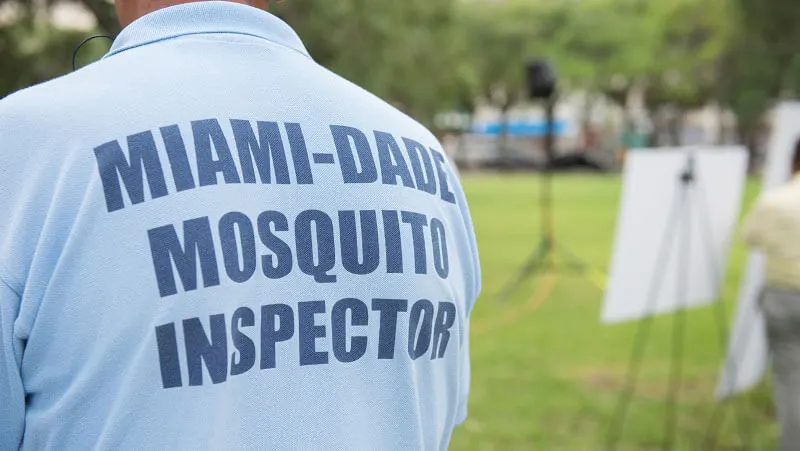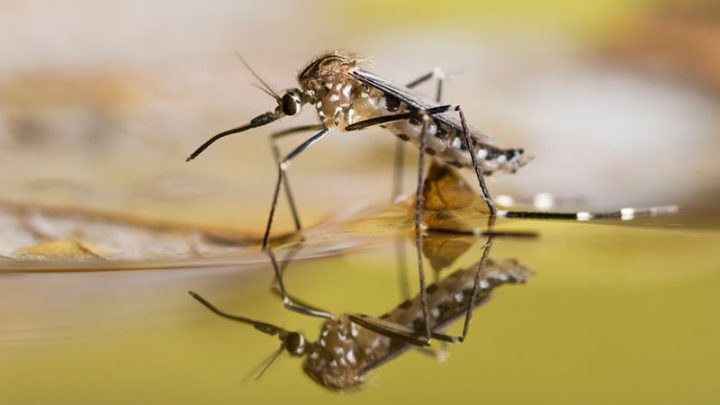Yes, mosquitoes are a way of life in Miami. But did you know you can request help if you’re experiencing significant mosquito problems?
Miami-Dade County’s 311Direct service allows you to submit a service request for an inspection. This applies to residential and commercial properties.

To keep up with latest news, sign up for the daily Miami on the Cheap newsletter. You can also follow us on Facebook and on Twitter.
HOW TO REQUEST HELP:
Just call 311 or place your request electronically through the 311Direct website or the 311Direct mobile application. Inspections typically take place within five days of placing the request, though it may take longer during the peak mosquito season.
“Our inspectors carefully check the yard of the individual who requested the inspection in search of any type of container that is holding water and possibly containing mosquito larvae or pupae. When mosquito breeding is found, the containers are emptied, removing the source of the problem,” according to the county website. “Insecticide may be used to treat large containers, such as swimming pools that are found to be housing mosquitoes. Alternatively, our inspectors may release mosquito larvae-eating Gambusia fish into abandoned swimming pools or outdoor spas and hot tubs. If adult mosquitoes are present during inspection, properties are sprayed using portable spray equipment in an attempt to kill flying adult mosquitoes.”

WHAT ABOUT TRUCK SPRAYING?
Miami-Dade County Mosquito Control uses mosquito traps to conduct surveillance throughout the region. This data, plus the number of resident requests for services, are used to determine where to conduct truck spraying. You can’t request truck spray treatments.
The website states: “Larvicide treatments are conducted using truck-mounted equipment to apply the organic pesticide Bti Bacillus thuringiensis israelensis, which eliminates mosquitoes in the larval stage. According to the U.S. Centers for Disease Control (CDC) and the Environmental Protection Agency (EPA), Bti is non-toxic to humans, pets, and animals, is a naturally-occurring bacterium found in soils, and has been used in mosquito control for more than 30 years.”
You can see the locations of upcoming sprayings on the official Facebook and Twitter pages.
WANT MORE TIPS?
It’s important to take precautions to prevent these insects from multiplying, biting and spreading disease (especially in the aftermath of a hurricane, when affected areas can become breeding grounds because of floodwaters, downed trees and overgrown grass).

Here are handy tips from RISE (Responsible Industry for a Sound Environment) and AMCA (American Mosquito Control Association):
- Drain all standing water and prevent water accumulation when possible. Check all areas that might hold water, such as tire swings, buckets, bottles, birdbaths, pet bowls, flowerpot saucers, pool toys – even bottle caps! Cover trash containers and store boats covered or upside down, or remove rainwater weekly from boats.
- Fill in or drain low places in your yard (including puddles, ruts, hollow stumps) and keep grass cut short and shrubbery well-trimmed to eliminate harborage for mosquitoes and other potentially harmful pests.
- Keep roof gutters free of leaves and other debris.
- Avoid activities during dawn and dusk when mosquitoes are most active.
- Avoid damp grass, which attracts mosquitoes, when taking part in outdoor activities.
- Wear long sleeves and pants.
- Defend yourself against mosquitoes with an EPA-approved repellent. Read more from the Centers for Disease Control and Prevention (CDC).
- Ensure all doors and windows are intact to prevent mosquitoes from coming in and out of your home.
For more information, click here.
More Useful Resources
- Free employment resources & recruitment events for Florida residents
- Free food-distribution events & food-drive drop-off information
- Register for free library e-card for lots of online resources
- Inexpensive rabies vaccines for pets
- Libraries offer drive-up & walk-up opportunities
- Deals for veterans, first responders & other front-line heroes
- Rent, utilities & other financial resources for Florida residents
- Free school supplies, events & resources
- Where to get a COVID vaccine in Miami-Dade
- Check out Miami On The Cheap’s special coupons page


